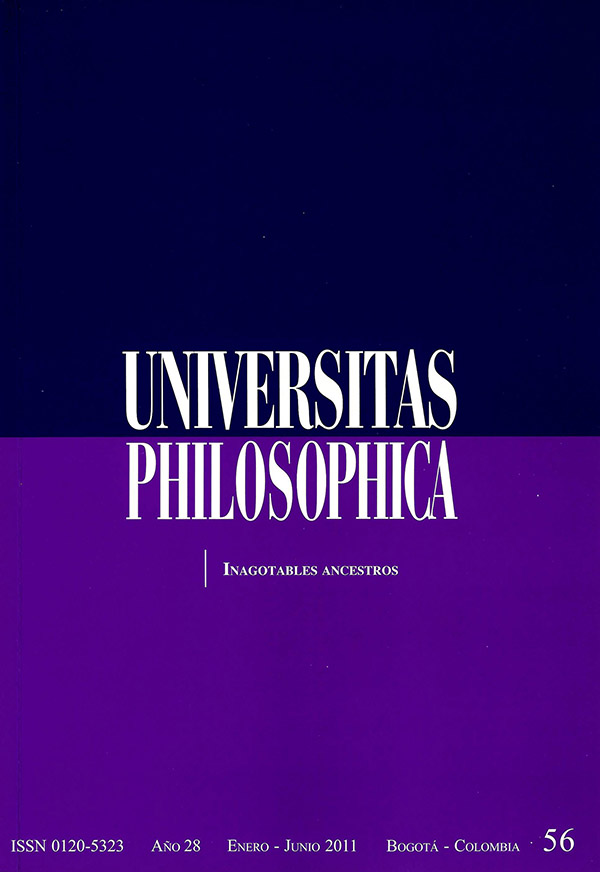Abstract
This article offers a critical balance of the tendencies of the philosophical historiography on John Duns Scotus in the Twentieth century, from its first period defined by the fight between the schools (Thomists versus Scotists) on the light of the enciclical Aeterni Patris, to the most recent academic research working on the critical edition of Scotus' works from 1950 onwards, by the Comissio Scotistica. From the first period to the recent one, one passes from an interpretation made by contrast with Saint Thomas works and authority (with E. Gilson as one of his best representatives), to an autonomous interpretation based specially on the scope of Scotus' metaphysics as the foundation of the structure of modern metaphysics (as the first onto-theology of the history of philosophy, following Heidegger’s concept), on the articulation of metaphysics and charity, and the general articulation of philosophy and theology.
This journal is registered under a Creative Commons Attribution 4.0 International Public License. Thus, this work may be reproduced, distributed, and publicly shared in digital format, as long as the names of the authors and Pontificia Universidad Javeriana are acknowledged. Others are allowed to quote, adapt, transform, auto-archive, republish, and create based on this material, for any purpose (even commercial ones), provided the authorship is duly acknowledged, a link to the original work is provided, and it is specified if changes have been made. Pontificia Universidad Javeriana does not hold the rights of published works and the authors are solely responsible for the contents of their works; they keep the moral, intellectual, privacy, and publicity rights.
Approving the intervention of the work (review, copy-editing, translation, layout) and the following outreach, are granted through an use license and not through an assignment of rights. This means the journal and Pontificia Universidad Javeriana cannot be held responsible for any ethical malpractice by the authors. As a consequence of the protection granted by the use license, the journal is not required to publish recantations or modify information already published, unless the errata stems from the editorial management process. Publishing contents in this journal does not generate royalties for contributors.


